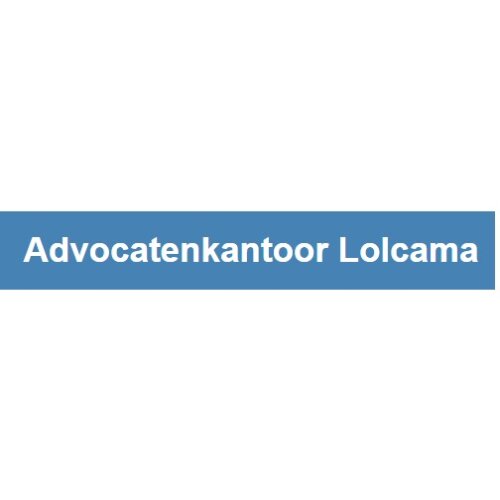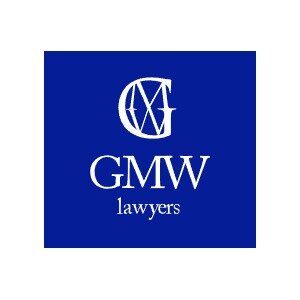Best ESG Advisory & Compliance Lawyers in The Hague
Share your needs with us, get contacted by law firms.
Free. Takes 2 min.
List of the best lawyers in The Hague, Netherlands
About ESG Advisory & Compliance Law in The Hague, Netherlands
Environmental, Social, and Governance (ESG) Advisory & Compliance law is an evolving practice area in The Hague, Netherlands, driven by global attention to sustainability, responsible business conduct, and corporate transparency. ESG legal services help organizations understand and comply with regulations surrounding environmental impact, societal responsibilities, and governance standards. Companies operating in The Hague must navigate a sophisticated landscape of Dutch and European Union (EU) laws, ensuring their operations align with ESG principles and reporting requirements. The Hague, known for its international institutions, is a hub for businesses committed to sustainability and ethical governance.
Why You May Need a Lawyer
The rising importance of ESG standards has introduced complex legal obligations for companies, non-profits, and governmental entities. There are several common scenarios in which legal assistance becomes essential:
- Complying with EU and Dutch ESG regulations and sustainability reporting requirements.
- Developing corporate policies that align with the Dutch Corporate Governance Code.
- Responding to ESG-related stakeholder inquiries, audits, or regulatory investigations.
- Managing risks related to environmental impact, labor rights, and anti-corruption.
- Undertaking mergers, acquisitions, or investment due diligence with ESG criteria in mind.
- Resolving disputes or regulatory actions involving non-compliance or ESG-related grievances.
A lawyer experienced in ESG Advisory & Compliance can help safeguard your organization’s reputation, reduce financial and legal risks, and ensure compliance with relevant Dutch and EU standards.
Local Laws Overview
The Netherlands is recognized for its progressive stance on ESG matters, codified through both national and EU regulations. Companies in The Hague must consider several key legal frameworks:
- Corporate Governance Code: Dutch law encourages companies to act transparently, responsibly, and accountably, with clear guidelines for boards on ESG integration.
- EU Corporate Sustainability Reporting Directive (CSRD): Companies meeting certain thresholds are obliged to report on sustainability matters, including environmental and social impacts.
- Dutch Environmental Management Act (Wet milieubeheer): Defines how organizations must identify, prevent, and mitigate environmental harm.
- Mandatory Human Rights Due Diligence: New Dutch and EU initiatives require companies to identify and address human rights risks throughout their supply chains.
- Climate Policy and Energy Transition: Dutch law, in line with EU Green Deal, mandates emission cuts and a transition toward renewable energy.
- Anti-corruption and Whistleblower Protection: Organizations must comply with Dutch anti-bribery laws and provide frameworks for reporting wrongdoing.
Falling short on any of these obligations can result in fines, reputational harm, and even litigation, emphasizing the importance of specialist legal guidance.
Frequently Asked Questions
What does ESG compliance mean for businesses in The Hague?
ESG compliance means adhering to legal and ethical standards in environmental protection, social responsibility, and corporate governance as required by Dutch and EU regulations.
Is ESG compliance mandatory for all organizations?
Not all organizations face the same requirements, but many medium and large enterprises, especially those operating internationally or listed companies, must comply with reporting and due diligence obligations.
What are the main ESG reporting requirements in the Netherlands?
Key requirements include sustainability reporting under the Corporate Sustainability Reporting Directive and specific environmental, social, and governance disclosures mandated by Dutch law.
How are ESG standards enforced in The Hague?
Enforcement comes from Dutch regulators, such as the Authority for the Financial Markets (AFM), and through EU agencies. Fines and legal actions may result from non-compliance.
What risks do organizations face by ignoring ESG law?
Risks include legal penalties, loss of investor confidence, public backlash, regulatory scrutiny, and operational disruption.
How can a lawyer help with ESG issues?
A lawyer provides guidance on legal compliance, assists with policy development, represents clients in disputes or investigations, and supports due diligence and reporting.
Can ESG legal advice improve a company’s reputation?
Yes, proactive ESG compliance demonstrates responsible management and can enhance stakeholder trust, investor relations, and brand value.
What is the role of the Dutch Corporate Governance Code in ESG?
It sets expectations for ethical leadership, transparency, and stakeholder engagement, which underpin effective ESG strategies for Dutch companies.
Are there penalties for failing to comply with ESG regulations?
Yes, penalties can include fines, exclusion from public procurement, and reputational harm. In serious cases, criminal proceedings may follow.
Is ESG compliance a one-time process?
No, ESG is an ongoing commitment. Companies must continuously review their practices, update policies, and remain vigilant to regulatory changes.
Additional Resources
For further information and support, consider consulting the following resources and authorities relevant to ESG Advisory & Compliance in The Hague:
- Netherlands Authority for the Financial Markets (AFM)
- Dutch Ministry of Economic Affairs and Climate Policy
- Dutch Corporate Governance Code Monitoring Committee
- International Chamber of Commerce Netherlands (ICC NL)
- Netherlands Enterprise Agency (RVO)
- Transparency International Netherlands
- European Commission - Corporate Sustainability Reporting
- Local bar associations and law firms specializing in ESG
Next Steps
If you require legal assistance with ESG Advisory & Compliance in The Hague, the following steps can help guide your approach:
- Assess your organization’s current ESG policies and practices.
- Identify areas where legal or regulatory obligations may not be fully met.
- Consult with a specialized ESG lawyer familiar with Dutch and EU compliance requirements.
- Prepare documentation and information for a legal review, such as sustainability reports, policies, and stakeholder disclosures.
- Work with your legal advisor to develop or improve policies, train staff, and establish compliance monitoring systems.
- Stay informed of legal and regulatory updates, ensuring ongoing compliance and response to emerging ESG issues.
Taking these steps will help safeguard your organization, promote ethical practices, and foster sustainable growth in line with best legal and business standards in The Hague.
Lawzana helps you find the best lawyers and law firms in The Hague through a curated and pre-screened list of qualified legal professionals. Our platform offers rankings and detailed profiles of attorneys and law firms, allowing you to compare based on practice areas, including ESG Advisory & Compliance, experience, and client feedback.
Each profile includes a description of the firm's areas of practice, client reviews, team members and partners, year of establishment, spoken languages, office locations, contact information, social media presence, and any published articles or resources. Most firms on our platform speak English and are experienced in both local and international legal matters.
Get a quote from top-rated law firms in The Hague, Netherlands — quickly, securely, and without unnecessary hassle.
Disclaimer:
The information provided on this page is for general informational purposes only and does not constitute legal advice. While we strive to ensure the accuracy and relevance of the content, legal information may change over time, and interpretations of the law can vary. You should always consult with a qualified legal professional for advice specific to your situation.
We disclaim all liability for actions taken or not taken based on the content of this page. If you believe any information is incorrect or outdated, please contact us, and we will review and update it where appropriate.










